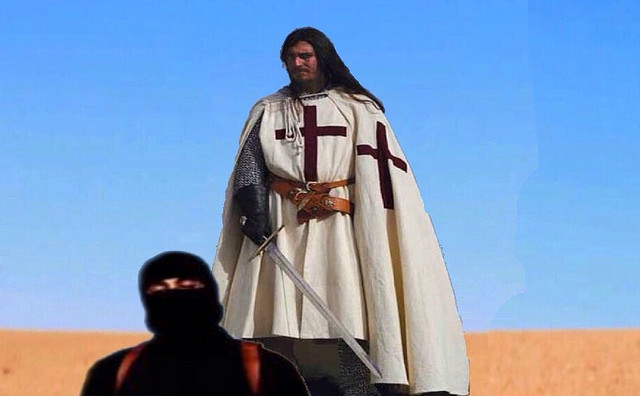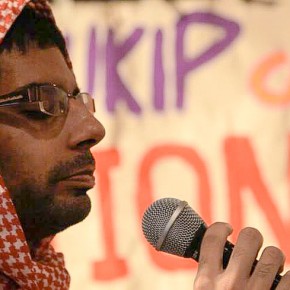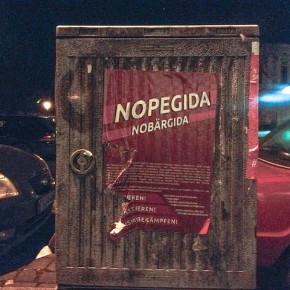When I set out to do ethnographic research on extreme metal for my doctorate in the mid-1990s, it was the transgression that fascinated me. I wanted to immerse myself in a culture dedicated to musical celebrations of the dark side, that flirted with sonic oblivion, that stared into the abyss.
And I found this transgression, not only in extreme metal music, but also in the extreme lives of scene members. One told me how he’d murdered his father as a teenager, others recounted tales of alcoholism and substance abuse, some had far right views.
Yet this wasn’t the whole story.
What was just as striking as the transgression of the extreme metal scene was its mundanity. To be involved in the extreme metal underground, at that time at least, meant countless hours writing letters, stuffing envelopes, copying tapes. The more fanatical an extreme metal scene member you were, the more time you were likely to spend in activities that at times – as some of my interviewees admitted – came close to boring drudgery.
In my thesis, and the book that eventually derived from it, I argued that the twin ‘logics’ of transgression and mundanity were the main drivers that reproduced the extreme metal scene. I argued that they were both necessary to the scene’s survival: a scene devoted to transgression alone would burn itself up in its own fanaticism, a scene devoted to mundanity alone would be so boring to be part of as to be pointless.
My examination of transgression and mundanity in extreme metal was not intended to be the basis for any wider arguments. My feeling was that the delicate balance that extreme metal scene’s achieve between transgression and mundanity was sui generis. But as the years have passed, I’ve come to see the extreme metal scene as finding a particular solution to a wider dilemma.
Consider the case of Josef Fritzl. His crimes appear to represent the ultimate fulfillment of a transgressive desire: to keep one’s daughter entirely under control, to be able to rape her at will, and to father a secret family whose existence is entirely subject to one’s own desires. Even those of us who use the term ‘evil’ parsimoniously cannot deny its applicability to Josef Fritzl and his deeds.

But what did the fulfillment of Fritzl’s transgressive desires require of him? Sustaining the imprisonment of one’s daughter and the children she bore for 24 years required an extraordinary logistical effort. Not only did Fritzl have to enlarge and fit out the secret prison, he also had to provide for the material needs of his prisoners – entirely alone. He regularly had to drive far from home to shop for the family, and the need to keep them alive necessitated considerable planning.
All this effort sounds incredibly exhausting, stressful and tedious. Indeed, although the full story of the case has yet to be told, the information available suggests that it was Fritzl’s old age that eventually led him to give in to Elizabeth’s pleading and consent to taking her daughter Kirstin to hospital, after which his ruse quickly unraveled.
Appreciating Fritzl’s exhausting logistical feats risks drawing attention away from his evil and even creating empathy for him. But it reveals something important and usually overlooked about transgression.
Fritzl’s decision to rape his daughter necessitated a further set of choices. He could have raped her on repeated occasions for years and maybe even got away with it, as plenty of abusers have done and continue to do. Yet he not only risked exposure and imprisonment – and the end of his ability to rape – after the first occasion, he would also have been unable to control his daughter between rapes.
His transgression, his evil, his desires would have been compromised and threatened. In order to fully experience his desires, he needed to commit to a course of action that would be logistically challenging and exhausting. His decision to imprison his daughter may have enabled a fuller form of transgression, but it came at a very heavy price.
This then is the dilemma that those who seek transgression face: in order to sustain it, you have to commit to a course of action that is anything but transgressive. And that is why Josef Fritzl is such a rarity. Most rapists are caught, usually sooner rather than later, because their transgressive desires overwhelm their ability to plan ahead and attend to logistics.

For most of us, most of the time, this dilemma doesn’t exist. We all have transgressive desires, but we limit their expression and fulfillment. This is the Hobbesian bargain that the majority of humans happily accept. Maybe because limiting transgression is such a ‘natural’ act for most of us, it becomes hard to appreciate the choices that those who are more fully committed to transgression.
It is this difficulty that lies at the centre of some of the debates over the Holocaust. How do we explain the bureaucratic nature of the Nazi genocide of Jews and other groups? Was it the evil fulfillment of the dark side of enlightenment rationality (pace Bauman, Adorno)? An expression of morality-free, emotion-free coldness (pace Arendt)? Or was the bureaucracy of the Holocaust simply a neutral means to achieve a wildly transgressive dream?
The desire to kill Jews is not unique to the Holocaust, but previous episodes of killing tended either to be limited in scope, or to burn themselves out after a while. In committing to a more fully transgressive course of action, the Nazis also had to commit to addressing a daunting logistical challenge. This challenge almost overwhelmed those who took part in it.
The biographies of key figures such as Adolf Eichmann, Heinrich Himmler and Rudolf Hess bring out the extraordinary workloads that they faced and the crippling stress they were under. Like Josef Fritzl, in order to fulfill a transgressive fantasy, the architects of the Holocaust lived lives that were anything but transgressive. In short, without an appreciation of the dilemma of transgression, the Holocaust seems somehow inexplicable, leading to interpretations that explain away either the transgressive or bureaucratic elements.
Islamic State are the latest to face the dilemma of transgression. Although information on what is actually going on in the areas they control is fragmentary, it does seem as though they are embarking on a course of action that could lead to genocide against rival Islamic sects and heterodox groups such as the Yezidis. Their commitment to shocking violence appears to awaken transgressive desires in those who come from the West to fight for them.
Sooner or later, the Islamic State will have to engage with some difficult decisions. If they wish to achieve a successful genocide, they will have to develop bureaucratic structures and logistical systems that can cope with the complexity.
To do so though, would mean disciplining their violent spontaneity in favour of developing structures that will require mundane work in order to achieve a more perfect genocide. Further, they will also have to hold territory and resist organized forces in order to have the time to complete their genocidal work. This, again, requires moving away from being a loose-knit band that is open to untrained volunteers, in favour of a hierarchical, disciplined and trained unit.
It is ironic that the best hope for those of us who desire the end of the evil of the Islamic State, is that they commit themselves completely to transgressive evil. Just as Josef Fritzl would ultimately have caused less harm had he been more spontaneous and instinctive in his transgression, so Islamic State will kill less in the long term if they concentrate purely on killing now.
I admire extreme metal scenes for finding a sophisticated and sustainable response to the dilemma of transgression. I fear though that Islamic State, and other genocidal forces, will find that balance too.
Photographs courtesy of bradypus1984,Wolfgang and #300091984. Published under a Creative Commons license.





